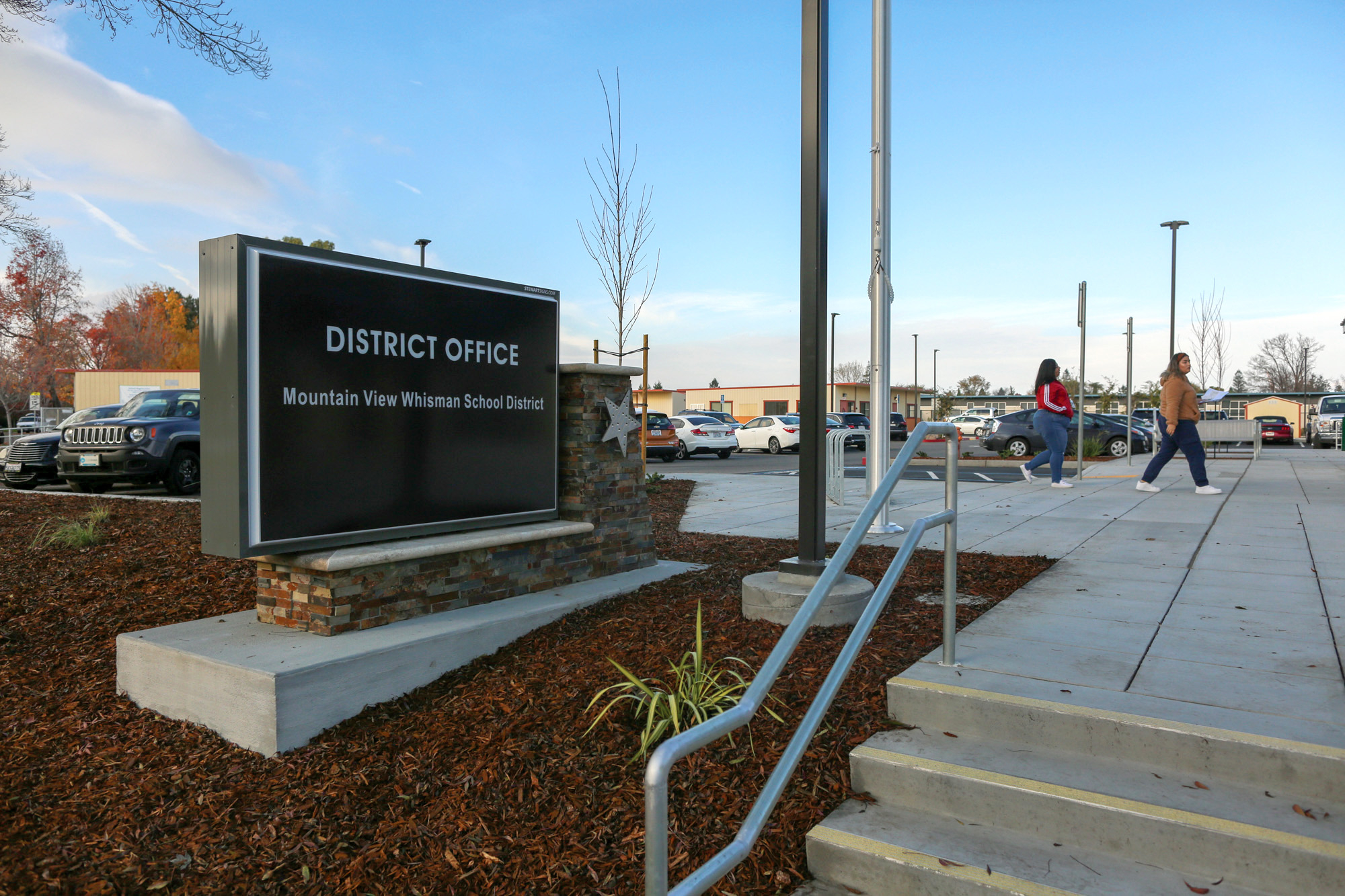The Mountain View Whisman school board rejected a proposal this week to lock in the way it elects its officers, opting instead to maintain discretion in picking its leadership.
At a Thursday, Nov. 2, meeting, school board member Bill Lambert brought forward an amendment to the board's bylaws that called for rotating who holds officer positions, allowing each member to have a chance to be president during their term.
Chris Chiang indicated that he would support the proposal, but Devon Conley, Laura Ramirez Berman and Laura Blakely were all opposed.
In recent years, the five-member board has sometimes (but not always) used a rotation system to select its president, vice president and clerk. Board leadership elections take place each December and are often relatively uncontroversial affairs. That wasn't the case last year.
While the board unanimously picked Berman as president, they were split between Chiang and Conley for vice president. The board ultimately voted 3-2 for Conley, with Chiang and Lambert dissenting. The vice president typically ascends to the presidency the following year.
At the time, Lambert told the Voice that he believed the district should use a rotation model and that if a trustee was going to be denied the presidency, the public deserved a well-articulated reason why.
Chiang has not served in any leadership positions since the start of his current term in December 2020. He previously served on the board from 2012 to 2015, which included a stint as president in 2015.
On Thursday, Lambert told his colleagues that he was proposing to formalize a rotation model because he believed that every trustee should get the opportunity to be president. The constituency who elected each board member should get a chance to see that person serving in the top job, Lambert said.
Chiang said that he would support Lambert's proposal, but that it didn't directly address what he saw at the main issue: the fact that people were "vying" to be president in the first place. When he previously served on the school board, Chiang said that there wasn't a culture of seeking the presidency.
Chiang attributed the change to what he described as incrementally giving the president more authority and having more decisions made behind the scenes, particularly around what items are put on the agenda. He also objected to attempts to keep trustees out of the presidency, which he said he was experiencing.
"Whether this board likes to admit it or not, I think there's a conscientious effort to keep me off … board leadership," Chiang said. "Do I really care? No I don't – I don't care about (being) board president. But I do think that it's become a political process and I think that's unfortunate. I think the school district is hurt by the politics at play."
When it comes to placing items on the agenda, Berman said that it's a matter of scheduling and that she hopes board members feel that any items they wanted agendized have been addressed. As president, she said that she hopes to carry out the wishes of the board in an efficient way. She added that she didn't feel compelled to change the way officers are selected.
Conley disagreed with Chiang's framing of people vying for the presidency. She described the job as a stressful and exhausting one and said that she doesn't believe trustees actively want it.
"I don't see this as a board of savvy political movers who are trying to vie for top rank," Conley said. "I feel like there might be a little of a dig at me, as though I am that person, and that is not who I am at all. I just want our team to be really successful – and I think we all want that."
Conley disagreed with requiring a rotation and said that in the past, the district has chosen who would be best for the job at a given time. She also pointed to the risks of a rotation if there's a particularly unsuitable board member. As an example, she pointed to a situation in the Franklin-McKinley School District, where the board recently censured one of its members.
Lambert responded that censure is the appropriate mechanism by which the board could exclude someone from being president, even with a rotation model.
Blakely also opposed Lambert's amendment and agreed with Conley that the board should retain choice in selecting its leaders.
"It's not a political thing," Blakely said. "I just want the best leader for our board who will help make us the most effective board."



Comments
Registered user
Cuesta Park
on Nov 3, 2023 at 5:14 pm
Registered user
on Nov 3, 2023 at 5:14 pm
not a "surprising" outcome. play fair? share sandbox toys? rotate: Like the 6-7 step recess pickup soccer rules - nah
It's a political thing! Decided by a majority.
Registered user
St. Francis Acres
on Nov 3, 2023 at 6:42 pm
Registered user
on Nov 3, 2023 at 6:42 pm
"The constituency who elected each board member should get a chance to see that person serving in the top job, Lambert said." .... not a great argument when the 2022 (at-large) election was uncontested (2 candidates for 2 seats) :)